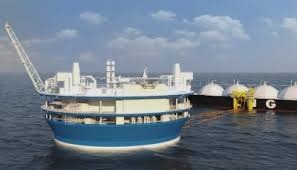Introduction
Increasingly, industrial processes within the petrochemical, chemical and nuclear power industries have the potential for large-scale disasters. Without the luxury of learning from experience, organizations must anticipate and set in place preventative risk control measures before major incidents and accidents occur.
Objectives
- Understand hazard and risk reduction methods
- Learn about technology choices
- Know how to using Reliability analysis
- Review selection of field devices
- Learn about hardware and software engineering
- Learn how to establish Operations and maintenance
Training Methodology
Delegates will learn by active participation through inspiring presentation tools and interactive techniques presented in a lively, enthusiastic and interesting style. Delegates will take part in practical human error analysis exercises and group discussions, as related to their own organisation’s workplace activities.
Organizational Impact
This course is specifically tailored for organisations involved in the field of safety related instrumentation and emergency shutdown systems as set out in IEC 61508/61511. Organisations will benefit by engineers:
- Acquaint engineers with the requirements of IEC 61508/61511
- Knowledge of safety instrumented systems life cycle of process plant
- Review of plant processes and designs for safety instrumented systems
- Knowing how to identify and evaluate significant risks
- Be able to select effective preventive and mitigating risk treatment solutions
Personal Impact
On successful completion of course, delegates will be able to:
- Understand Safety Instrumented Systems and their impact on process controls
- Select and specify different technology choices and know how to apply them
- Exchanging ideas, problems and solutions with other delegates
- Understand process and plant operation and applying safety life cycle model
- Learn about using safety instrumented systems in layers of protection (LOP)
- Learn how to identify and evaluate risks and their treatment solutions
Who Should Attend?
Following the training provided by this course, participants will be equipped with the knowledge that will enable them to understand and evaluate technological choices that will assist the organisation to meet the needs of standards (IEC 61508/61511).
- Personnel responsible for safety instrumentation systems
- Personnel who want to understand safety instrumentation systems (SIS)
- Asset management team members
- Instrument and Process Control Engineers and Technicians
- Mechanical engineers and technicians
- Operations and Process Engineers
SEMINAR OUTLINE
DAY 1
Introduction to Safety Instrumentation Systems
- Overview of safety instrumentation systems (SIS)
- Introduction to standards IEC 61508, IEC 61511 and ISA S84.01
- Principles of equipment under control
- Introduction to hazards and risk
- Safety life cycle and management tools
- Meaning of safety-Integrity Levels (SILs)
DAY 2
Hazards & Risk Reduction
- Identifying Hazards and risk analysis tools (HAZOP, FTA, Bow-Tie, etc)
- Process control vs. safety control
- Layered Protection models
- Risk reduction and risk ranking classification
- Safety Integrity Level (SIL)
DAY 3
Technology Choices and Reliability Analysis
- Design process and Failure modes
- What the standards say (IEC 61508 and IEC 61511)
- Development of safety PLCs (programme logic controllers)
- Analysis models and methods
- Reliability analysis parameters
- Calculation packages and reliability databases
DAY 4
Safety in Instrumentation and Field Devices
- Field devices for safety
- Sensor types
- Application of field devices
- Design requirements for field devices
- Technology issues
DAY 5
Safety Systems Engineering
- Project engineering
- ISA clause: SIS detailed design
- Information flow and documents
- Engineering application software
- Impact of safety systems failure
- Summary of course key points

